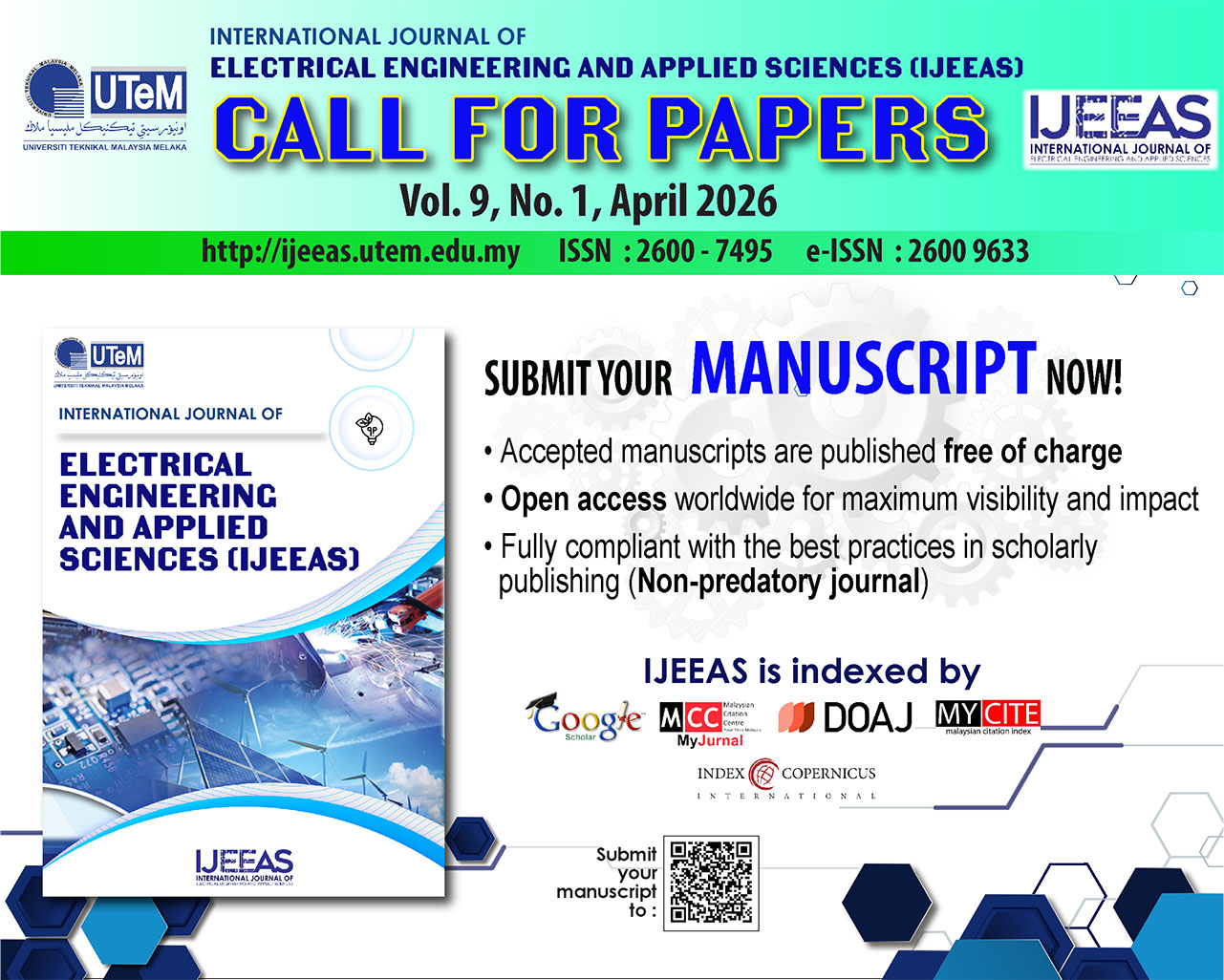Performance Evaluation of Single Phase Transformerless Inverter for Grid-connected Photovoltaic Application
Abstract
This paper presents the performance evaluation of single-phase grid-connected transformerless inverter according to the level of leakage ground current. The leakage ground current ismeasured through the parasitic capacitance of PV array when the high or line transformer is omitted in the system. To prevent the electric shock, the low amplitude of leakage current is important to be achieved. The factors contribute to the leakage current, which are the PWM techniques used; parasitic capacitance and AC filter are investigated in this paper. From the Matlab Simulink simulation result, Bipolar SPWM achieves zero leakage current due to constant common mode voltage. Meanwhile the Unipolar SPWM has higher leakage current due to changing common mode voltage. However, the leakage current is reduced when the inductor filter magnitude is doubled. Generally, the efficiency of unipolar SPWM is slightly higher compared to bipolar SPWM and further improved when the inductor filter magnitude is doubled. The increase in the parasitic capacitance slightly reduces the efficiency of the inverter as well. From this finding, it is concluded that factors such as parasitic capacitance of the PV array, the PWM switching method used and the filter design must be taking into consideration in the design of the transformerless PV inverter in order to achieve minimum leakage current according to VDE-415 standard and optimum efficiency.
Downloads
Downloads
Published
How to Cite
Issue
Section
License
Authors who publish with this journal agree to the following terms:
- Authors retain copyright and grant the journal right of first publication with the work simultaneously licensed under a Creative Commons Attribution License that allows others to share the work with an acknowledgement of the work's authorship and initial publication in this journal.
- Authors are able to enter into separate, additional contractual arrangements for the non-exclusive distribution of the journal's published version of the work (e.g., post it to an institutional repository or publish it in a book), with an acknowledgement of its initial publication in this journal.
- Authors are permitted and encouraged to post their work online (e.g., in institutional repositories or on their website) prior to and during the submission process, as it can lead to productive exchanges, as well as earlier and greater citation of published work (See The Effect of Open Access).







